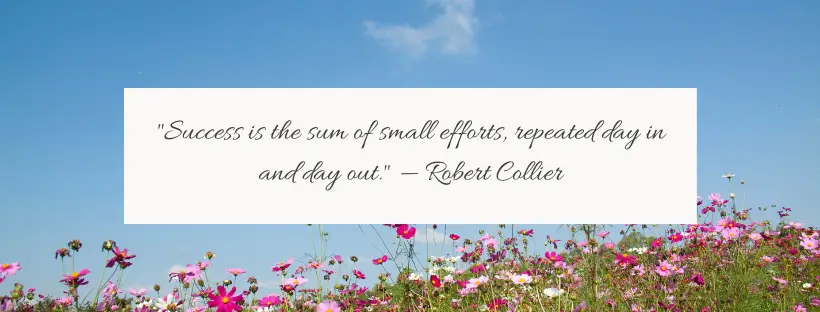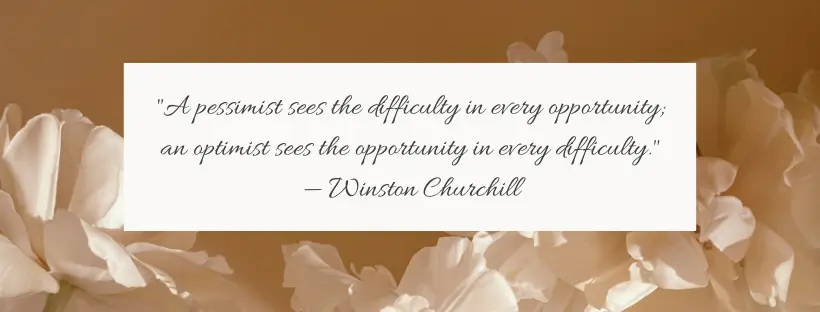Transform Your Mindset: 9 Steps to Unlock Your Full Potential

Your mindset dictates how you perceive and navigate through life’s challenges and opportunities. It’s the lens through which you view your abilities and the world around you. Are you stuck in a cycle of self-doubt and fear of failure, or do you embrace new experiences with the belief that you can grow and improve? The mindset you choose to cultivate can either propel you forward or hold you back.
To achieve meaningful professional and personal growth, it’s essential to develop a mindset that encourages learning, resilience, and optimism. A growth mindset empowers you to view setbacks as opportunities for improvement and to persist in the face of challenges. In contrast, a fixed mindset can lead to a fear of failure and a reluctance to step out of your comfort zone.
Here’s how you can transform your mindset and unlock new opportunities for growth and success through these nine practical steps:
- Transform Your Mindset: 9 Steps to Unlock Your Full Potential
- 1. Identify if You Have a Fixed or Growth Mindset
- 2. Replace Negative Thoughts with Positive Ones
- 3. Be Open to Learning and Trying New Things
- 4. Set Incremental Goals: Focus on Small, Achievable Goals
- 5. Practice Optimism in Daily Situations
- 6. Learn from Mistakes: View Failures as Growth Opportunities
- 7. Engage with Growth-Minded People
- 8. Practice Gratitude: Reflect on and Appreciate Your Progress
- 9. Be Consistent: Regularly Apply These Principles
- Final Thoughts

1. Identify if You Have a Fixed or Growth Mindset

Your mindset is the key to unlocking your potential. It shapes how you approach challenges, setbacks, and opportunities. Do you embrace difficulties as chances to improve, driven by a desire to learn and grow? Or do you avoid challenges, fearing failure and seeing effort as fruitless? The mindset you cultivate profoundly impacts your personal and professional development.
Understanding your mindset is crucial as it influences how you handle adversity, pursue goals, and engage with the world. A growth mindset, believing abilities can be developed through dedication and hard work, fosters resilience and continuous improvement. In contrast, a fixed mindset, viewing abilities as static, can lead to stagnation and a fear of failure.
To identify your mindset, reflect on your thoughts and behaviors. Do you say, “I can’t do this,” or “I can learn to do this”? Do you avoid challenges or see them as opportunities? Do setbacks make you give up, or do they motivate you to try harder? How do you view effort and feedback? Are you threatened by others’ success or inspired by it?
Recognizing your mindset is the first step. To cultivate a growth mindset, embrace challenges, learn from criticism, value effort, reframe failures as learning opportunities, and maintain curiosity. Engage with growth-minded individuals who encourage your development. By understanding and adjusting your mindset, you can transform obstacles into stepping stones, turning potential roadblocks into opportunities for growth and success.
2. Replace Negative Thoughts with Positive Ones

Your beliefs shape your reality. Negative thoughts and self-doubt can limit your potential, keeping you from achieving your goals. By challenging these limiting beliefs and replacing them with positive ones, you can transform your mindset and unlock new opportunities for growth.
First, identify the negative thoughts that hold you back. Pay attention to recurring patterns of self-doubt and pessimism. Are you telling yourself, “I’m not good enough,” or “I’ll never succeed”? Write these thoughts down to confront them directly.
Next, analyze these beliefs. Are they based on facts or assumptions? Often, negative thoughts stem from fear rather than reality. Challenge their validity by questioning their truth and looking for evidence to the contrary.
Replace negative thoughts with positive affirmations. Instead of saying, “I can’t do this,” tell yourself, “I am capable of learning and growing.” Visualize your success and imagine overcoming obstacles with confidence.
Surround yourself with positive influences. Engage with people who uplift and encourage you, and seek out environments that foster a positive mindset. This support system will help reinforce your new, positive beliefs.
By challenging and replacing limiting beliefs, you open the door to personal and professional growth. Transform self-doubt into self-assurance, and watch as new opportunities unfold before you.
3. Be Open to Learning and Trying New Things

Your willingness to embrace new experiences is key to personal growth and development. Openness to learning and trying new things expands your horizons and builds resilience, enriching your life in countless ways.
Be curious and adventurous. Explore new hobbies, travel to unfamiliar places, and engage in diverse activities. Each new experience offers a chance to learn and grow, helping you to develop new skills and perspectives. Trying new things not only broadens your knowledge but also enhances your adaptability, making you more capable of handling change and uncertainty.
Surround yourself with people who encourage exploration and are open to new ideas. Their enthusiasm can inspire you to step out of your comfort zone and take on challenges you might have otherwise avoided. Engage in conversations, attend events, and join groups that introduce you to different viewpoints and experiences.
Remember, growth happens when you push beyond your boundaries. The more you expose yourself to new experiences, the more confident and capable you become in navigating the complexities of life. As Albert Einstein said, “The only source of knowledge is experience.” Embrace the unknown and discover the limitless possibilities that come with new experiences. By doing so, you open the door to a richer, more fulfilling life.
4. Set Incremental Goals: Focus on Small, Achievable Goals

Achieving long-term success often begins with setting incremental goals. By focusing on small, achievable objectives, you can create a clear path toward your larger ambitions, ensuring consistent progress and sustained motivation.
Start by breaking down your big goals into smaller, manageable tasks. Each small step forward is a building block toward your ultimate goal. These incremental goals should be specific, measurable, attainable, relevant, and time-bound (SMART). This approach helps maintain focus and prevents feelings of overwhelm.
Celebrate each achievement, no matter how small. Recognizing your progress boosts morale and reinforces your commitment to the larger goal. Small victories build momentum and confidence, making larger goals seem more attainable.
Track your progress regularly. Adjust your goals as needed to stay on course, and be flexible enough to adapt to new information or changing circumstances. This ongoing evaluation keeps you aligned with your objectives and ensures that you remain on the right path.
By setting and achieving incremental goals, you establish a pattern of success and continuous improvement. This method not only makes daunting tasks more manageable but also cultivates a mindset of perseverance and resilience. As you accomplish each small goal, you move steadily closer to realizing your ultimate vision.
In the words of Robert Collier, “Success is the sum of small efforts, repeated day in and day out.” Focus on the small, achievable goals, and watch how they lead you to greater achievements and personal growth.
5. Practice Optimism in Daily Situations

Cultivating a positive outlook is essential for personal and professional growth. Optimism enhances your ability to handle challenges, increases resilience, and improves overall well-being. By practicing optimism in daily situations, you can transform your perspective and create a more fulfilling life.
Start by focusing on the positive aspects of your day. Acknowledge the small wins and express gratitude for the good things that happen, no matter how minor they may seem. Keeping a gratitude journal can help reinforce this habit.
Reframe negative situations by looking for the silver lining. When faced with a setback, ask yourself what you can learn from the experience or how it might lead to new opportunities. This shift in perspective can reduce stress and build resilience.
Surround yourself with positive influences. Engage with people who uplift and inspire you, and limit exposure to negativity. Positive relationships foster a supportive environment that nurtures optimism.
Practice positive self-talk. Replace negative thoughts with affirmations that encourage and motivate you. For example, instead of thinking, “I can’t do this,” remind yourself, “I can handle this challenge.”
Engage in activities that boost your mood and energy. Regular exercise, mindfulness practices, and hobbies that you enjoy can significantly enhance your outlook on life.
By consistently practicing optimism, you can develop a habit of looking for the best in every situation. This positive outlook not only improves your mental and emotional health but also enhances your ability to achieve your goals and enjoy a more satisfying life. As Winston Churchill said, “A pessimist sees the difficulty in every opportunity; an optimist sees the opportunity in every difficulty.”
6. Learn from Mistakes: View Failures as Growth Opportunities

Learning from mistakes is a cornerstone of personal and professional growth. Viewing failures as growth opportunities allows you to gain valuable insights and build resilience, turning setbacks into stepping stones for future success.
Start by acknowledging your mistakes without self-criticism. Understand that errors are a natural part of the learning process. Reflect on what went wrong and why, analyzing the situation to uncover the root causes. This reflection helps you identify areas for improvement and develop strategies to avoid similar mistakes in the future.
Shift your perspective on failure. Instead of seeing it as a reflection of your abilities, view it as an essential component of growth and development. Embrace the lessons that come from your missteps and use them to fuel your progress.
Seek feedback from others to gain a different perspective on your mistakes. Constructive criticism can provide valuable insights and help you see aspects you might have missed. Use this feedback to refine your approach and enhance your skills.
Document your learning process. Keeping a journal of your mistakes and the lessons learned can help reinforce your growth and serve as a reference for future challenges.
By adopting this approach, you transform failures into powerful learning experiences that propel you forward. Remember, “Success is not final, failure is not fatal: It is the courage to continue that counts.” — Winston Churchill. Embrace your mistakes, learn from them, and continue striving toward your goals.
7. Engage with Growth-Minded People

The company you keep significantly influences your mindset and personal development. Surrounding yourself with positivity and engaging with growth-minded people can profoundly impact your journey toward success.
Seek out individuals who inspire and motivate you. Growth-minded people encourage continuous learning, celebrate your successes, and support you during challenges. Their positive attitudes and forward-thinking perspectives can help you stay focused on your goals and maintain a resilient mindset.
Participate in groups and communities that foster growth and positivity. Join clubs, attend workshops, or engage in online forums where you can connect with like-minded individuals who share your commitment to personal and professional development.
Limit exposure to negativity. Identify and reduce interactions with people who drain your energy or discourage your aspirations. Protecting your mental space is essential for maintaining a positive outlook and staying on track.
Actively contribute to your positive circle. Offer support, share knowledge, and celebrate the achievements of others. Building reciprocal relationships based on mutual growth and encouragement enhances the collective positivity and reinforces your own growth mindset.
By surrounding yourself with positivity and engaging with growth-minded people, you create an environment conducive to continuous improvement and success. Remember, “You are the average of the five people you spend the most time with.” — Jim Rohn. Choose your company wisely and watch your potential flourish.
8. Practice Gratitude: Reflect on and Appreciate Your Progress

Practicing gratitude is a powerful tool for personal growth and well-being. By reflecting on and appreciating your progress, you can maintain a positive mindset and stay motivated on your journey toward your goals.
Start by regularly setting aside time to reflect on your achievements, no matter how small. Consider keeping a gratitude journal where you write down things you are thankful for each day, focusing on your progress and accomplishments. This practice helps you recognize how far you’ve come and keeps you motivated.
Acknowledge the effort and perseverance that have brought you to where you are today. Celebrate milestones and successes, and use them as reminders of your capability and resilience. Recognizing your achievements boosts your confidence and encourages continued effort.
Express gratitude to those who have supported and encouraged you along the way. Sharing your appreciation not only strengthens your relationships but also fosters a positive environment that benefits everyone involved.
By practicing gratitude, you cultivate a mindset that values progress and continuous improvement. This positive outlook not only enhances your well-being but also propels you toward greater success. As Melody Beattie said, “Gratitude makes sense of our past, brings peace for today, and creates a vision for tomorrow.”
9. Be Consistent: Regularly Apply These Principles

Consistency is crucial for lasting personal growth and development. Regularly applying the principles you’ve learned ensures steady progress and helps solidify new habits.
Commit to daily practice. Whether it’s setting incremental goals, embracing new experiences, or challenging limiting beliefs, make these actions part of your routine. Consistent effort, even in small amounts, accumulates over time and leads to significant improvements.
Track your progress and celebrate your achievements, no matter how small. Recognizing your consistency reinforces positive behavior and keeps you motivated.
Adapt and refine your approach as needed. Consistency doesn’t mean rigidity; be flexible and willing to adjust your methods to stay effective and relevant.
By staying consistent, you build momentum and resilience, making it easier to maintain and enhance the positive changes in your life. Remember, “Success doesn’t come from what you do occasionally, but from what you do consistently.” — Marie Forleo.
Final Thoughts

Changing your mindset is a transformative process that requires commitment, self-awareness, and persistence. By recognizing whether you have a fixed or growth mindset, you take the first step toward unlocking your true potential. Challenging limiting beliefs and replacing negative thoughts with positive ones can significantly enhance your personal and professional development.
Embracing new experiences, setting incremental goals, and adopting a positive outlook in daily situations are essential strategies for fostering continuous growth. Learning from mistakes and viewing failures as opportunities for growth build resilience and pave the way for future success. Surrounding yourself with positivity and engaging with growth-minded individuals create a supportive environment that encourages progress.
Practicing gratitude and reflecting on your progress help maintain a positive mindset and keep you motivated. Consistency in applying these principles is crucial for achieving lasting change and reaching your goals.
Your mindset shapes your reality. By cultivating a growth mindset and consistently applying these strategies, you can transform obstacles into opportunities and turn your dreams into achievable goals. Embrace the power of positive thinking and perseverance. Your potential is limitless when you believe in your ability to grow and succeed.